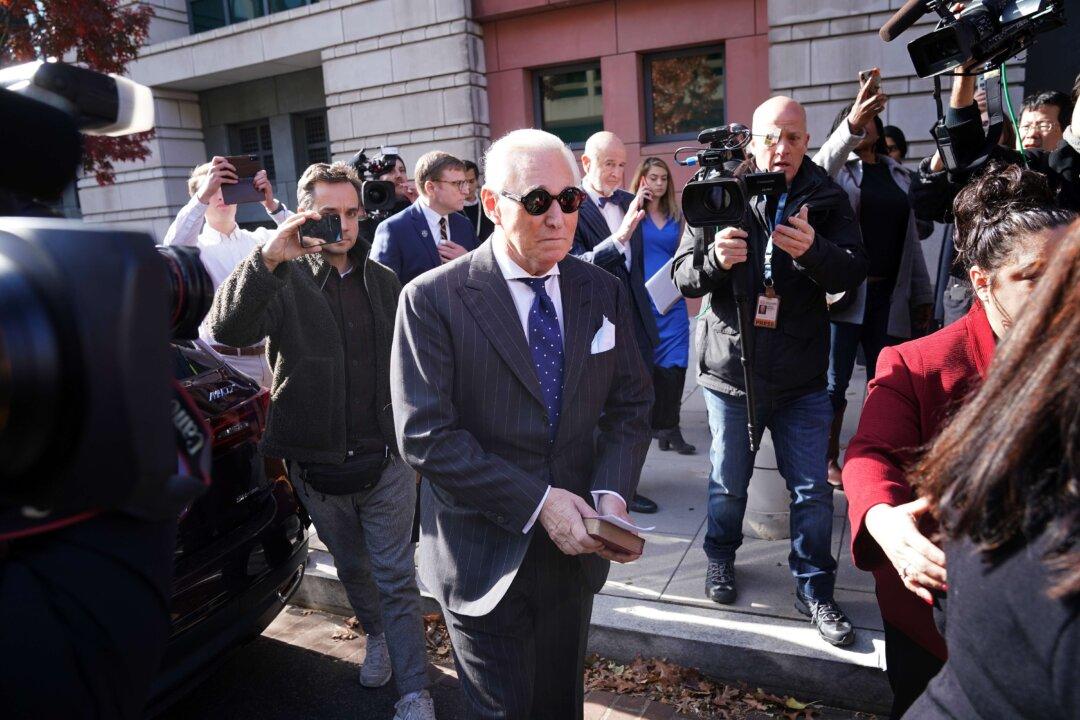The foreperson of the jury that convicted former Donald Trump campaign adviser Roger Stone showed clear animus against Trump in a slew of social media posts that surfaced after she identified herself as the foreperson while issuing a defense of government prosecutors who withdrew from the case this week.
Tomeka Hart said on Feb. 12 that she led the jury that convicted Stone on seven counts of witness tampering, obstruction of a congressional investigation, and lying to Congress in 2019. Hart said she wanted to speak out following four prosecutors’ withdrawal from the case after the Department of Justice issued revised sentencing recommendations to federal Judge Amy Berman Jackson.





